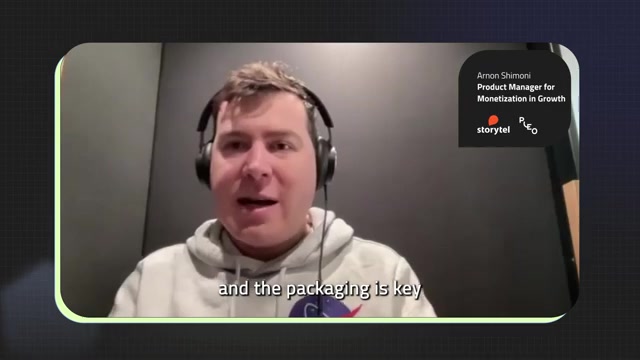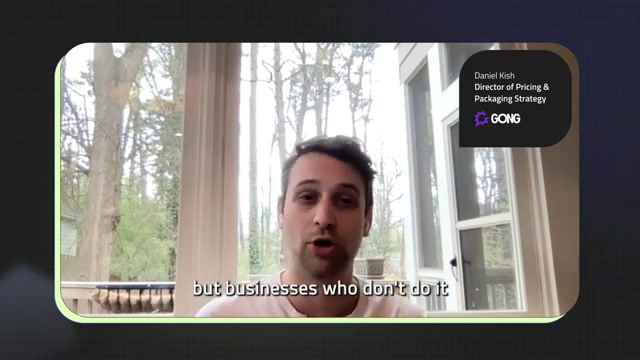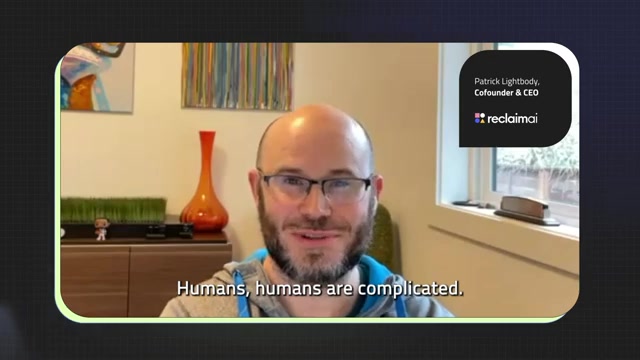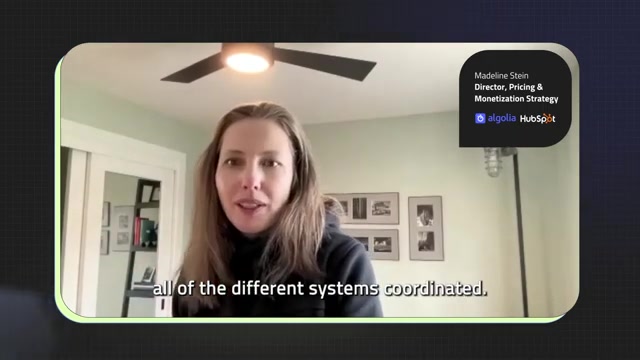https://www.youtube.com/watch?v=oZUf10O2zJE
[Extended cut] SaaS pricing & packaging has to change. Now.

Just building features is not enough .
You have to think about how do you price your product in a way which is optimized for business success .
Many companies especially in the beginning aren't really sure what the benefit is yet .
So they're not really sure how to price it , even mature businesses .
It's uh it's an evolving process , the speed of product innovation , customer needs and company priorities changes a lot .
We want to always be at the forefront of , of what we're doing in the industry rather than playing catch up .
I think the days of , you know , launching a pricing model and then not changing it for the next 10 years , like those days are kind of gone .
Pricing and packaging is one of the most powerful levers available in growth .
It's not just a number that's on a page .
Um Pricing is an experience and I think we're just scratching the surface of how to give a consistent experience .
What is my pricing ?
What is my packaging structure ?

What are the entitlements uh for each packaging structure and who has those packages and entitlements that has continued to remain in the code base playing around with the pricing and the packaging is key to international expansion .
So often , I think systems are not necessarily designed for pricing and packaging changes .
They're really designed for the initial model .
If you did not build that correctly to begin with , you have to do a massive overhaul of how you price .
There are so many hacks you have to pull off .
It's a complex topic and I'm a , I'm a former back end engineer , so I understand the constraints and the complexities .
But yeah , there has to be a better way .
It's critical to make sure that you know , the customer gets the right value at the right time at the right price point .

Pretty soon , it's gonna not only become um table stakes to be able to offer this level of flexibility but businesses who don't do , it might not even survive high are pricing projects so hard billing underlying metering entitlements plans , usage based pricing trials , overage premium subscription management , flexible upgrade and downgrade flows the soft serve portal on boarding paywalls pricing page to make sure the experience is seamless plan versioning .
Then you have to deal with the legacy .
How do I migrate customers over ?
Excuse , do you want to grandfather them ?
God forbid enterprise discount promotions , extending someone's trial , a discussion with the same sales rep who's got a quota to me .
Add ons introducing new products and new plan , a new skew and you set a price model feature , usage , price experimentation , localization insights and knowing you're in the right direction .

Playing with the packaging , there are a million permutations , integrations to the various systems , the compliance side of things because you want to do international expansion .
Humans , humans are complicated pricing is the truly the one piece of your product that cuts across every single function and everybody has an opinion .
That's what makes it very complex and very nail biting to some teams .
10 lots of tension .
It's a distraction for um for everyone , major price changes can take quarters .
Even the most simple pricing changes I have found tend to be more complex than you'd expect .
It kind of shakes the whole system .
It's universal .
Every pricing project I've ever been on has been way more complicated than anyone appreciated .
How do you think about future flexibility when building and designing systems ?
A click of a button and suddenly it's updated in all the right places .
Um And everybody's on the same page .

Um That doesn't just save you time , it saves you just the the stress of coordinating everything and talking to everyone and there's no outlier that kind of breaks the whole thing , having something like a compos platform that I could build upon without having to get individual contracts with 100 different companies .
That would be phenomenal would need to be api first for ease of integration into product .
It would need to , importantly , I think decouple pricing and packaging changes from the need to write code so that products and business users can react to opportunities and test frequently fast tech dynamics , highly competitive .
You want to iterate on pricing and you don't want a pricing to be a friction point .
You want it to be a strategic advantage when you want to pull that advantage .
What I would love is , you know , really having tools that really enable pricing teams to focus on so I can focus on the customer , I can deep dive on business performance .

Um I can , you know , look for uncovered pricing opportunities versus making sure that we , you know , have all of the different systems coordinated more controls where I could say , OK , today , I want , you know , to allow and give grace periods for overage .
But maybe tomorrow , I want to change our business model .
If you build it as a platform , you , you will be in a much better place to kind of quickly adapt to business needs a system like stig which allows us to be more flexible and with speed .
And that helps me attain focus that I'm focusing on the actual uh uh value addition feature that we wanted to build or test .
Um Not worry about everything behind it .
Pricing and monetization is one of those things that every company has to do .
So , like why isn't there a solution to help us do it faster ?
Like right now , so many people are building pricing skew entitlements , experiments from scratch like ground up and it's like if we're doing that repeatedly , why don't we have a tool to help us do it faster ?

That's kind of how I think about it starts emerging .
And platforms like stig become a lot more prevalent and an important part of the tech stack where we're more enabled and empowered to actually go make pricing a strategic advantage and be able to experiment and test a lot more frequently than I think we are today .
Are you looking for a way to reach a wider audience and get more views on your videos?
Our innovative video to text transcribing service can help you do just that.
We provide accurate transcriptions of your videos along with visual content that will help you attract new viewers and keep them engaged. Plus, our data analytics and ad campaign tools can help you monetize your content and maximize your revenue.
Let's partner up and take your video content to the next level!
Contact us today to learn more.